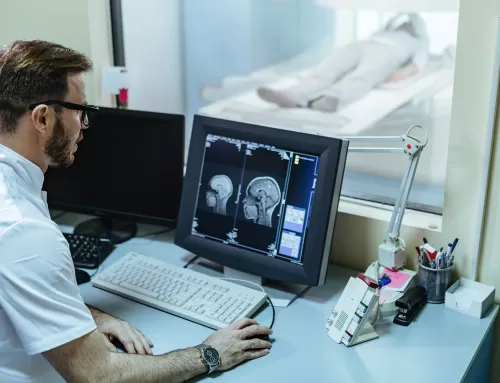TABLE OF CONTENT
Cognitive behavioural therapy (CBT) – is a type of psychotherapy that combines cognitive therapy and behaviour therapy by identifying unfavourable or maladaptive thoughts, emotions, or behaviour patterns and replacing them with more constructive ones. Thus, it teaches people how to recognise and alter harmful or unsettling thought patterns that negatively affect their behaviour and emotions.
The Guiding Principles of Cognitive Behavioural Therapy (CBT)
Cognitive behavioural therapy aims to alter the automatic negative thoughts that can exacerbate and contribute to emotional problems, depression, and anxiety. Therefore, these uncontrollable negative thoughts negatively impact our mood. Through CBT, false beliefs are exposed, refuted, and replaced with more accurate, realistic beliefs. cognitive behavioural therapy is based on several fundamental ideas, such as:
- Some psychological problems can be attributed to negative or dysfunctional thought patterns.
- Unhelpful behaviour patterns play a role in some psychological problems; therefore, cognitive behavioural therapy helps unlearn that.
- Problematic core beliefs, such as fundamental notions about who you are and how the world works, can contribute to psychological problems.
People dealing with psychological issues can learn more effective coping mechanisms with CBT. Hence, it lessens the symptoms and improves their mental and emotional health.
What Can Cognitive Behavioural Therapy (CBT) Help With?
National treatment guidelines across the UK and EU strongly endorse CBT as a treatment option for various patients and problems. In addition, the National Institute for Health and Clinical Excellence (NICE) offers the NHS unbiased, evidence-based recommendations on the best, most time-tested medical interventions.
NICE guidelines recommend cognitive behavioural therapy for a wide range of issues, including but not limited to the following:
- Anxiety Disorders (Including Panic Attacks)
- Depression And Depressive Disorders
- Obsessive Compulsive Disorder (OCD)
- Post-Traumatic Stress Disorder (PTSD)
- Sleep And Eating Disorders
- Tinnitus And Insomnia
- Substance use disorders
- Phobias and Sexual disorders
The effectiveness of cognitive behavioural therapy in assisting people in managing the symptoms of numerous other conditions, such as:
- Chronic Fatigue Syndrome (CFS)
- Irritable Bowel Syndrome (IBS)
- Fibromyalgia
- Chronic Pain
Adults, older adults, and children can all benefit from CBT techniques. A cognitive behavioural therapy course can be completed independently or concurrently with a GP or other medical professional who prescribes medication. However, it will depend on the challenge cognitive behavioural therapy assists with and individual preference.
Finding a CBT Therapist
It is typically best to first discuss problems with your doctor. Concise Medico offers the option of self-referral and access to private therapists. Please confirm your therapist’s accreditation with us before beginning CBT.
Furthermore, you can contact us directly (or schedule a call back) via (01282) 786 185. Have a great day!




